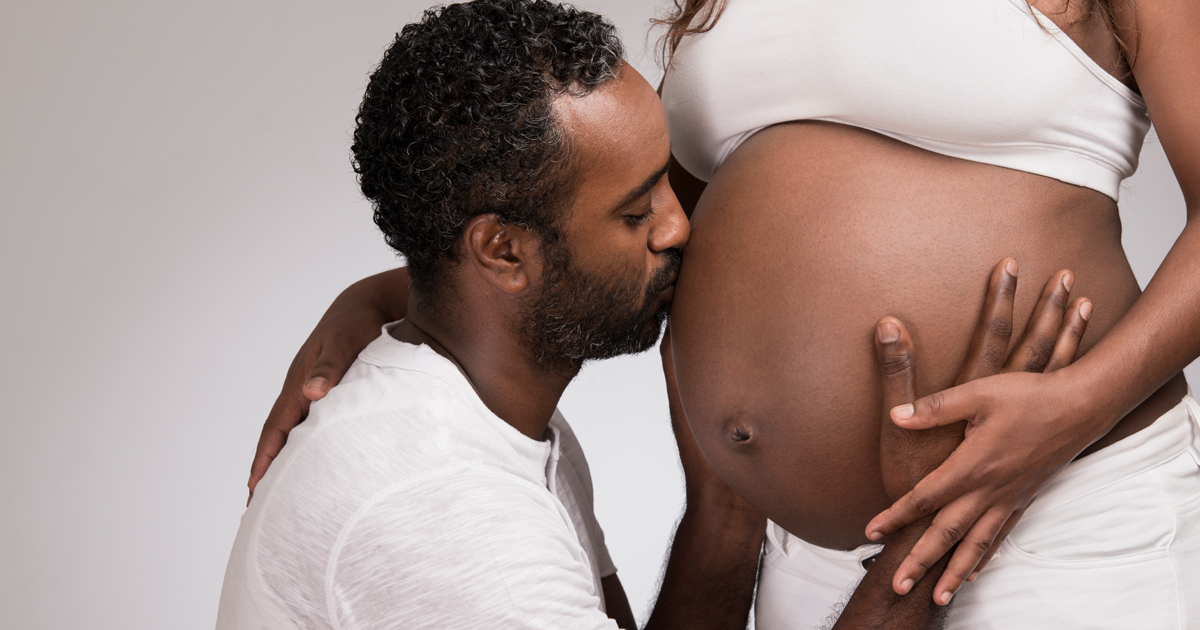Trying to grow your family? Everything you should know

Even without complications, conceiving a child isn’t always as easy as you might have expected. Arming yourself with the necessary knowledge will make your journey easier.`
In each menstrual cycle, even with everything being “normal”, there is only a 20% chance that you’ll fall pregnant,’ says Dr NT Matebese, obstetrician, gynaecologist and reproductive medicine specialist at the Groote Schuur Fertility Unit in Cape Town. Add to this statistics that show that one in every six couples in South Africa has complications that will bring this percentage down even further, and it suddenly becomes clear that you cannot take your ability to conceive for granted.
Still, people think their fertility is something they can dictate: they expect to fall pregnant when they want, with ease,’ says Dr Merwyn Jacobson, reproductive health specialist at Vitalab fertility clinic in Joburg. Together with the fact that many people put off having children until their late 30s due to work and other pressures, this results in more people needing some sort of fertility treatment in order to have children.
The reality is the longer you wait to have children, the higher the chances that you’ll struggle to fall pregnant,’ says Professor Thinus Kruger, reproductive specialist at the Aevitas fertility clinic in Cape Town. ‘You cannot age proof your fertility,’ says Dr Jacobson.
Age is the most critical factor when it comes to female fertility. You are born with a finite number of eggs some good quality, others bad and you start using these up when you start menstruating. The percentage of good eggs declines progressively it’s a process that cannot be stopped.

SO, WHEN IS THE BEST TIME TO BECOME PREGNANT?
Your fertility is probably at its peak between the ages of 24 and 26, says Dr Jacobson. That is the best time, physiologically speaking, though there are social and psychological reasons why it might not be possible or practical to conceive at that age. From the age of 35 the process by which your eggs decline speeds up, and between 37 and 38 there is a marked decline in your fertility.
WHAT IS INFERTILITY?
As a rule, infertility is the inability to conceive after a year of trying, says Dr Matebese. Dr Jacobson adds that men are just as likely to be the cause of infertility as women, if not more so. Dr Matebese says you can divide the problem into thirds: ‘In a third of the cases I see the problem lies with the male partner, in another third it lies with the woman, and in the remaining third it is either a combination of male/ female problems or the infertility is unexplained,’ he says.
IS INFERTILITY INCREASING?
The number of women requiring treatment is increasing, says Dr Matebese, because they are delaying pregnancy. This isn’t the same thing as an increase in infertility. A woman I see at 37 might have fallen pregnant without treatment when she was 30. Dr Jacobson agrees that it’s difficult to say for sure whether there is an increase in the actual percentage of women with fertility issues, or whether it’s just that more people are seeking treatment. ‘Until recently fertility wasn’t discussed,’ he says, whereas now people are more open to talking about it so we hear about more cases. There are indications, however, that changes in our lifestyle and the fact that women are leaving it until later in life to start trying to conceive are going to result in an increase in numbers.
WHAT ARE THE CAUSES
When it comes to female infertility, there are three main causes – tubal, hormonal and structural.
Tubal
‘This is where one or both of the Fallopian tubes are blocked, either partially or wholly, or where there is tubal scarring,’ says Dr Matebese. This is caused by pelvic infection or by endometriosis (where the tissue that lines the uterus has spread elsewhere). In Sub-Saharan Africa the major cause of infertility is tubal disease, because of the high incidence of the sexually transmitted diseases (STDs) gonorrhoea and chlamydia. The treatment options for this are in vitro fertilisation (IVF) or artificial insemination (AI).Hormonal
‘Here the woman isn’t ovulating or her cycle is irregular and no egg is being released,’ says Dr Jacobson. This is often seen in women suffering from Polycystic Ovary Syndrome (PCOS), or where there are glandular problems or high levels of stress. Treatments such as IVF or AI generally aren’t applicable in these cases, although under some circumstances your doctor will advise IVF as the appropriate course of action. However, it’s more likely that you’ll be advised to undergo hormone therapy such as Clomid.
Related article: PCOS 101
Structural
In these cases there are problems with the overall structure of your reproductive organs, such as ovarian cysts or fibroid tumours in the uterus. Here, treatment depends on the nature of the structural problem.
WHAT ABOUT CONTRACEPTION?
If you have been using the contraceptive pill, it is reversible almost immediately and doesn’t affect your chances of conceiving. You could fall pregnant within weeks of stopping taking the pill. Contraceptive injections, however, such as Depo Provera, can delay fertility because it can take up to a year after stopping the injections before you start ovulating again.
Related article: 6 contraceptives pros and cons
SECONDARY INFERTILITY
‘It is possible to conceive your first child easily, only to have difficulty falling pregnant a second time. A woman may be several years older when planning her second pregnancy, and this could impact on her fertility,’ says Dr Jacobson. There might also have been an infection after the first pregnancy that could affect fertility. Dr Jacobson advises seeking help after six months if you’ve already had one child but aren’t able to fall pregnant with your second.
Related article: When second time around isn’t easy

CELEBS WHO’VE STRUGGLED TO FALL PREGNANT
Celine Dion (IVF)
Gabrielle Union-Wade (surrogacy)
Halle Berry (IVF)
Sarah Jessica Parker (surrogacy)
Nicole Kidman (surrogacy)
Courtney Cox (IVF)
CAN YOU BE BORN INFERTILE?
Yes, says Dr Matebese. ‘Some women are born unable to conceive without help: either they have a congenital disorder such as a double uterus, or they were born without a uterus, or they have chromosomal problems’. In these cases the options are either IVF (where possible), adoption, donor eggs or acceptance that she will never have biological children. In this case counselling is an important part of the treatment process. You can’t just look at the physiological reasons why she can’t fall pregnant; you have to look at the psycho-social impact, such as her feeling that she’s failed as a woman or the pressure she might be getting from her community.
GOLDEN RULES FOR FEMALE FERTILITY
- Whatever your age, if you’ve had problems 1such as irregular, painful or abnormal periods, pelvic infections, surgery or pain during intercourse, you should seek help when you decide you want to try to conceive. If you’re over 35, seek help after six months of unsuccessfully trying to conceive, and if you’re under 35, try for a year 2before visiting a doctor.
- Losing just five percent of your body weight can increase your fertility – once you’re at a healthy weight, maintain it.
- For women, drinking more than two units of alcohol a day influences fertility, says Dr Jacobson (a small glass of wine equals about one unit). And available data indicates that up to 13% of infertility may be caused by cigarette 4smoking.
- If you’re trying to fall pregnant you should be having sexual intercourse around three times a week, 5says Dr Matebese.
- Practice safe sex contracting an STD such as chlamydia in your early 20s, when children might not be on the radar, can impact on your fertility 10 years later.
- No more than 15% of infertility couples need IVF, says Dr Jacobson. A large number of cases are resolved through other methods, such as weight loss, hormone therapy, having intercourse at specific times of the month, and lifestyle changes.
![]() JET CLUB HELPLINES
JET CLUB HELPLINES
For free advice on any health problems or queries, Jet Club members can call our helpline.
SA & Namibia
0800 00 45 45
Botswana, Lesotho & Swaziland
+2711 991 8258
Related articles

Latest Jet club magazine
We’ve got the latest trends, exciting prizes and exclusive savings just for you!
Jet Club will not pass your details to anyone else. By clicking the subscribe button you confirm you have read and agree to the Jet Club Terms and conditions and Jet Club Privacy Statement.
Subscribe

